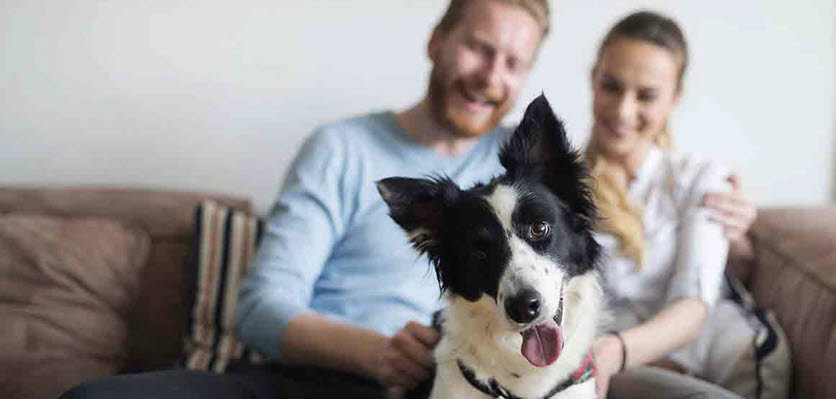
The past decade has seen an exponential increase in the number of people living in apartments in Australia. Apartments offer many advantages to detached homes, including lower entry prices, no gardens to upkeep and never having to remember bin day.
As apartment living becomes a normal part of society, we must also consider how our pets may be adapting. It would come as no surprise to learn that not all pets are suited to apartment life. Read on to learn more about what pets are best suited to apartments and our four essential elements to keeping pets in apartments.
Best pets for apartments
As apartments are traditionally smaller than houses, the reduction in space should be factored into your pet’s lifestyle. High-energy dog breeds, particularly working dogs like Kelpies, may not suit an apartment life. Young, energetic dogs such as puppies and young adults may also struggle with the confined quarters, especially if they are going to be left alone for long periods of time.
The number of pets you keep in an apartment should also be factored in, as space is important for all pets to maintain healthy relationships with each other. This is particularly important for cats, who are generally territorial. Dispute resolution amongst cats usually involves some space and time away, so it’s important all cats can rest and hide from each other (and from you!).
Some pets are perfect for apartments though. Fish and reptiles live in tanks that provide specific environmental conditions, so they don’t mind if you live in a house or an apartment, their requirements are the same.
Older animals may also enjoy living in apartments, as their energy requirements are lower, and they are often more independent than younger animals. If you have an older dog that might be suffering from arthritis, ensure your journeys outside don’t incorporate too many steps to avoid inflaming the condition. Instead, look for a ground floor apartment or a building with lifts.
Four essential elements to keeping pets in apartments
- Stimulation
Ensure your pet has plenty to do! Safe toys, puzzle feeders, resting places with a view, and having a friend drop by during the day can all help keep pets occupied while you’re out of the house. - Routine
If your dog lives in an apartment, they rely on you to provide them with access to the outdoors for toilet breaks. If you want to avoid toileting accidents in your home, establish and stick to a routine that your dog can rely upon. Walk them at least twice a day, with the first walk just before you leave for work and the second one when you get home. - Space
Keep in mind how many pets you can realistically have in your apartment. All pets need space, so they can rest and relax and having too many pets under one roof will lead to increased stress. - Energy levels
The size of your dog is less important than their energy levels. Some older, large breed dogs are perfectly happy to sleep all day in an apartment. Younger dogs and working breeds are more likely to get bored if left alone in a small area, so always keep in mind your dog’s temperament.
